The Australian Government is now in caretaker period. During this time, updates on this website will be published in accordance with the Guidance on Caretaker Conventions, until after the election.
Membership

Chair,
Professor
Dianne
Nicol
Chair and member with expertise in a relevant area of law
Professor Dianne Nicol ceased her positions as Distinguished Professor of Law and Director of the Centre for Law and Genetics at the University of Tasmania at the end of 2021. She currently holds the title of Distinguished Professor Emerita and continues to be a member of the Centre for Law and Genetics at the University of Tasmania. A Professor of Law with a doctorate in biology, Professor Nicol brings a multi-disciplinary approach to her research, which spans legal, research ethics and social issues associated with genomic data sharing and regulation of innovative and emerging health technologies.
She is currently the first named Chief Investigator on two Australian Research Council Discovery Grant Projects and the second named Chief Investigator on an Australian Research Council Linkage Grant Project. Additionally, she is the current chief investigator on two grants funded by the MRFF Genomics Health Futures Mission Ethical, Legal and Social Implications Program and one grant funded by the MRFF Stem Cell Technologies Mission.
Her expertise is sought in a range of national and international fora, including as a co-lead of the Regulatory and Ethics Work Stream of the Global Alliance for Genomic Health, member of the Centre for Law and Genetics and member of the Independent Advisory Committee for International Cancer Genome Consortium Accelerating Research in Genomic Oncology. From 2020 to 2022, she held a contract with the Federal Health Department to undertake research on the Assessment of Legislation and Regulations Applying to the Collection and Use of Health-Related Genomic Information. She has previously served on the Australian Advisory Council on Medicinal Use of Cannabis, and the Genomics Health Futures Mission Expert Advisory Committee. She is also co-editor of the Australian Intellectual Property Journal and a Genomics Section contributor to the Journal of Law and Medicine.
Prior to being appointed as Chair the Embryo Research Licensing Committee (ERLC) for the 2018–2021 triennium and for the 2021–2024 triennium, Professor Nicol served as the member in common on both the Australian Health Ethics Committee and ERLC (2015–2018). She was a member of the NHMRC Mitochondrial Donation Expert Working Committee (2019–20) and had previously contributed to the development of ethical advice on emerging assisted reproductive technologies.
Professor Nicol is a fellow of the Australian Academy of Law and the Australian Academy of Health and Medical Sciences.
Declaration
- University of Tasmania, Distinguished Professor Emerita
- Provision of fee for service and pro bono consultancies on behalf of institutional affiliations and self
- Recipient of, and likely future applicant to, NHMRC for research funding, including salary support for self and/or team
- Institutional employment and professional affiliations as noted in profile.
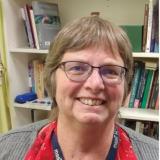
Professor
Lynn
Gillam
AM
Member with expertise in research ethics
Professor Lynn Gillam is a Professor in Health Ethics at the University of Melbourne and the Academic Director, Children’s Bioethics Centre, Royal Children's Hospital. In July 2021 she transferred to the University of Melbourne's Department of Paediatrics following a term at the School of Population and Global Health.
A clinical ethicist trained in philosophy and bioethics Professor Gillam’s research is focused on human research ethics. She is Chair of her University's Central Human Research Ethics Committee and a member of the Research Ethics and Integrity Standing Committee. She also provides policy advice and leads research into a range of issues in paediatric clinical ethics, including end of life decision-making, management of differences of sex development, information-giving to children, fertility preservation for prepubertal children undergoing gonadotoxic treatment, use of high-cost investigational drugs and parental refusal of treatment.
Professor Gillam first served on ERLC from 2009 to 2015, and was also a member of NHMRC Clinical Ethics Capacity Building Working Committee (2013–2015). She is a member of a number of state and federal advisory bodies, including the Victorian Independent Medical Advisory Committee on Medicinal Cannabis and Victorian Newborn Bloodspot Screening Committee.
Professor Gillam was awarded the Royal Children's Hospital Chairman's Medal (2018), in recognition of her work and was made a Member of the Order of Australia in 2019 for service to medical education in the field of bioethics.
Declaration
- Provision of fee for service and pro bono consultancies on behalf of institutional affiliations and self
- Recipient of, and likely future applicant to, NHMRC for research funding, including salary support for self and/or team
- Institutional employment and professional affiliations as noted in profile.
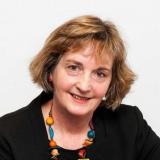
Ms
Louise
Johnson
Member with expertise in the regulation of assisted reproductive technology
Ms Louise Johnson spent 16 years as Chief Executive Officer of the Victorian Assisted Reproductive Treatment Authority (VARTA), stepping down in February 2021. VARTA regulates the provision of fertility treatments in Victoria and plays an educative and support role for people seeking to have a baby using IVF and manages the donor conception registers.
A graduate of the Australian Institute of Company Directors, with postgraduate qualifications in management and education, Ms Johnson previously worked as a hospital microbiologist and a science teacher. She also held roles in the NGO sector prior to joining VARTA, including with the Cancer Council of Victoria and Occupational Therapy Australia.
Ms Johnson has been a member of ERLC since 2018. She also served as a community member on the Victorian Board of the Medical Board of Australia. Her extensive work to advance women's health was recognised in 2019 with a Women's Health Victoria 'Champion for Women' in recognition of board and executive work.
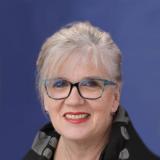
Associate Professor
Bernadette
Richards
A member of the Australian Health Ethics Committee
Adjunct Associate Professor Bernadette Richards is a bioethics and health law expert at the Australian Centre for Health Law Research, Queensland University of Technology and the Adelaide Law School, Adelaide University. She is also a Senior Research Scientist at Singapore-ETH Centre, a joint initiative of the Swiss Federal Institute of Technology and Singaporean National Research Foundation.
An active researcher with a focus on ethics and medical law, Associate Professor Richards has completed major projects on organ donation, consent to treatment and legal issues around innovative surgery. Additional areas of focus include health data governance, issues around Advance Care Planning, access to innovative treatment, the role of Artificial Intelligence in diagnosis and the role of medical device representatives in surgery.
Associate Professor Richards has been a member of ERLC since 2015 and has served as the member in common with the Australian Health Ethics Committee since 2018. She is a member of the NHMRC Dietary Guidelines Governance Committee and Chaired NHMRC's Mitochondrial Donation Expert Working Committee (2019–20).
She is President of the Australasian Association of Bioethics and Health Law and is on the editorial board of the Medical Law Review.
Declaration
- Director of the Journal of Bioethical Inquiry Pty
- Provision of fee for service and pro bono consultancies on behalf of institutional affiliations and self
- Recipient of, and likely future applicant to, NHMRC for research funding, including salary support for self and/or team
- Institutional employment and professional affiliations as noted in profile.

Professor
Sarah
Robertson
Member with expertise in a relevant area of research
Professor Sarah Robertson is a NHMRC Investigator Grant Leadership Fellow with the University of Adelaide. Prior to assuming this role in April 2021, she spent eight years as Director of the university's Robinson Research Institute, which specialises in research into the reproductive and early life origins of health and disease.
Working in partnership with industry, both domestically and abroad, Professor Robertson's research has led to novel interventions for infertility and miscarriage in women. Her research focuses on the immune response to conception and pregnancy, and consequences for reproductive success and offspring health. Her research has shown that the immune system channels environmental signals from both female and male parents to contribute to reproductive success and shape the offspring's phenotype through non-genomic pathways. These discoveries are improving practise in reproductive medicine and are providing insight into early life origins of child health.
Professor Robertson was awarded the 2020 NHMRC Elizabeth Blackburn Investigator Grant Award (Leadership in Basic Science). She is a Fellow of the Australian Academy of Science and the Australian Academy of Health and Medical Sciences, and a Fellow of the Society for Reproductive Biology. Professor Robertson has also been a member and chair on numerous NHMRC peer review panels and serves on the Scientific Advisory Board of the Ramaciotti Foundation, a philanthropic funder of biomedical research.
Declaration
- Provision of fee for service and pro bono consultancies on behalf of institutional affiliations and self
- Recipient of, and likely future applicant to, NHMRC for research funding, including salary support for self and/or team
- Institutional employment and professional affiliations as noted in profile.
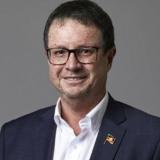
Professor
Steve
Robson
Member with expertise in assisted reproductive technology
Professor Steve Robson is a specialist obstetrician and gynaecologist with a special interest in reproductive medicine and surgery. He is a Visiting Medical Officer for ACT Health and a Professor of Obstetrics and Gynaecology at the Australian National University Medical School.
A Past-President of the Royal Australian and New Zealand College of Obstetricians and Gynaecologists, Professor Robson's research interests include reproductive surgery, assisted reproduction, surgical economics, and general gynaecological surgery. He also has an interest in the effects of genomics on society and is involved in research on genetic screening.
He is the founder and Chair of the charity, Send Hope Not Flowers delivering practical solutions and support to improve the survival of mothers following childbirth in the developing world. Having previously worked as a Royal Australian Navy Medical Officer and rural GP in Central Queensland, Professor Robson brings his collective experiences and insights to the work of ERLC.
Professor Robson has been a member of ERLC since 2018. He also serves on the Gene Technology Ethics and Community Consultative Committee, is a member of Council of the AMC, and is a member of the Federal Council of the Australian Medical Association and their representative on the National Association of Specialist Obstetricians and Gynaecologists.
He is a Fellow of the Colleges of Obstetrics and Gynaecology of Australia, the United Kingdom and the United States of America.
Declaration
- Director of Stephen Robson Medical Pty Ltd, Australian Medical Association (ACT) Limited, and Send Hope Pty Ltd
- Provision of clinical IVF services through Genea Pty Ltd on a fee for service basis, no shares held in Genea or other ownership benefits received
- Provision of fee for service and pro bono consultancies on behalf of institutional affiliations and self
- Recipient of, and likely future applicant to, NHMRC for research funding, including salary support for self and/or team
- Institutional employment and professional affiliations as noted in profile.

Professor
Patrick
Tam
Member with expertise in embryology
Professor Patrick Tam is Deputy Director and Head of Embryology Research Unit at the Children's Medical Research Institute, and Professor in the School of Medical Sciences, Sydney Medical School of the University of Sydney. Professor Tam is also Mok Hing-Yiu Distinguished Visiting Professor at the University of Hong Kong.
A Fellow of a number of international societies, Professor Tam's research focuses on the functional attributes of the gene regulatory network in body patterning; and stem cell differentiation. It has revealed the cellular and molecular mechanisms that underpin the organisation of the early embryo's basic 'body plan' and guides the development of protocols to facilitate stem cell development into clinically useful cell types for cellular therapy.
Professor Tam has been a member of ERLC since 2015 and served on NHMRC's Mitochondrial Donation Expert Working Committee (2019–20), and a member of the Australian Functional Genomics Network Steering Committee, and Chair of its Scientific Review Panel. Professor Tam serves on a range of stem cell related advisory panels both in Australian and internationally. He is also an editor of the journal, Development and serves on editorial boards of Developmental Cell, Developmental Biology, Differentiation, Genesis, and the International Journal of Biological Sciences.
Professor Tam was awarded the President's Medal of the Australia and New Zealand Society of Cell and Developmental Biology in 2007 and the Julian Wells Medal in 2019. He is a Fellow of the Australian Academy of Science, the Royal Society of London, Royal Society of Biology and the Australian Academy of Health and Medical Science.
Declaration
- Member of the NSW Health Genomics Strategy, and Australian Research Council Medical Research Advisory Group
- Provision of fee for service and pro bono consultancies on behalf of institutional affiliations and self
- Recipient of, and likely future applicant to, NHMRC for research funding, including salary support for self and/or team
- Institutional employment and professional affiliations as noted in profile.
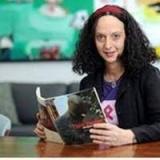
Ms
Cal
Volks
Member with expertise in consumer issues relating to assisted reproductive technology
Ms Cal Volks is a PhD candidate at La Trobe University Law School and a previous Director of the University of Cape Town HIV/AIDS, Inclusivity and Change Unit, in Cape Town, South Africa.
A social science researcher and counsellor, Ms Volks works with the Victorian Assisted Reproductive Treatment Authority providing supervision to the donor-linking counsellors and is a Senior Infertility Counsellor in private practice. She has been working in the field of reproductive and sexual health, particularly around assisted reproduction and HIV/AIDS for the past 27 years as a researcher, public educator, manager and counsellor. She is a member of the executive Committee of the Australian and New Zealand Infertility Counsellors Association.
Ms Volks is currently completing her PhD at La Trobe University Law School, where she is investigating the experiences of Australian egg and sperm donors who have had early contact with their donor conceived children (under the age of 18) and/or recipient parents.
Declaration
- Provision of fee for service and pro bono consultancies on behalf of institutional affiliations and self
- Recipient of, and likely future applicant to, NHMRC for research funding, including salary support for self and/or team
- Institutional employment and professional affiliations as noted in profile.
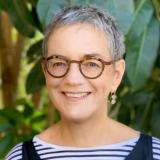
Dr
Carol
Wicking
Member with expertise in consumer health issues relating to disability and disease
Dr Carol Wicking is a Director at Rare Voices Australia (RVA), the peak advocacy body representing those living with a rare disease in Australia. She is also a member of RVA's Scientific and Medical Advisory Committee, and was chair of this committee from 2017-2021. Dr Wicking is an Honorary Associate Professor at the Institute for Molecular Bioscience at the University of Queensland.
A retired academic researcher, Dr Wicking has over 30 years research experience focused primarily on investigating the genetic, molecular and cellular basis of a number of rare diseases including cystic fibrosis, naevoid basal cell carcinoma syndrome and a class of rare diseases known as ciliopathies. Her research also explored the mechanisms underlying embryological development of the limb and craniofacial complex.
Dr Wicking is a past President of the Australian and New Zealand Society for Cell and Developmental Biology and is Science Advisor and Board Member of Phenomics Australia, a founding member of the National Collaborative Research Infrastructure Strategy (NCRIS). She was Chair of the Phenomics Australia Board from 2019-2021.
Declaration
- Member of Scientific and Medical Advisory Committee and Director of Rare Voices Australia
- Science Advisor and Board Member of Phenomics Australia
- Provision of fee for service and pro bono consultancies on behalf of self
- Institutional and professional affiliations as noted in profile.